
CSR Report 2023/2024
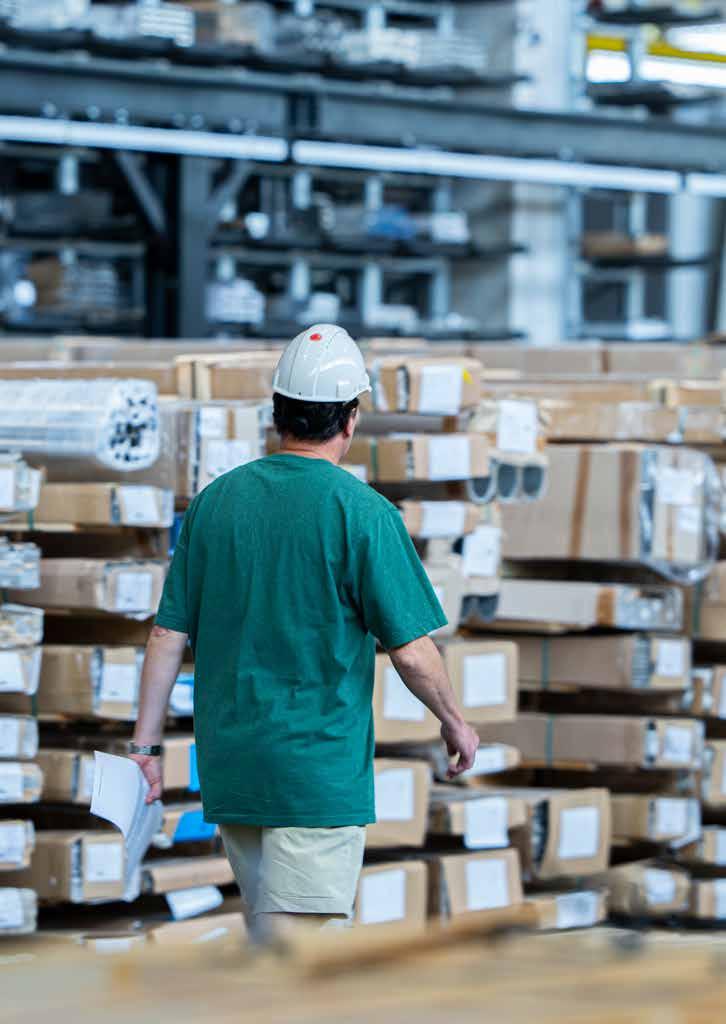


CSR Report 2023/2024

Sustainability and responsible business operations are no longer simply a choice. They are a necessity. At a time when the legal framework changes rapidly and expectations from customers, investors and society are constantly increasing, our work with ESG is more important than ever.
Working with CSR and ESG demands a major effort in order to keep up with ever changing legal requirements and political demands from the EU. Ever higher demands are being put on data collection, documentation and reporting across the entire supply chain, and it is a complex task which demands both time and resources.
In the past fiscal year, implementation of the EU Corporate Sustainability Reporting Directive (CSRD) has set a new standard for ESG reporting, while at the same time compelling companies to upgrade their processes in order to ensure compliance. This comprehensive legislation harmonizes the demands across the EU, but it also requires a sustained effort to adapt and improve our work. Keeping up with the most recent regulations and ensuring smooth implementation is a continuing task that demands both strategic focus and operational execution.
At the same time, we see ESG as a crucial competition parameter. Firms that succeed in integrating ESG into their business strategy not only achieve better compliance, but also a stronger market position. Sustainability has become a critical choice criterion for both customers and investors, and the firms that can document accountability and transparency gain a stronger competitive position.
It is no secret that ESG work demands considerable resources, but we see it as an investment in the future. Management of the Carbon Border Adjustment
Mechanism (CBAM) in the EU is an example of a regulatory development that entails extensive administrative tasks in relation to both data collection and selection of collaborating partners with a focus on climate change mitigation.
In order to ensure compliance, we have invested in advanced systems for compliance screening, so that we are continually updated as to the relevant export regulations and can conduct risk assessments of our collaborating partners. This is a crucial part of our strategy in order to minimize risks and ensuring that we do business only with reliable partners.
Decency and credibility are the pillars of our global activities. We take our responsibility seriously, in relation to our employees, the environment and our business partners. The ESG effort, therefore, is not only an administrative burden. It is also an integral part of our business strategy that contributes to longterm value for both the company and society.
This report describes the results we have achieved over the past year, as well as future initiatives so that we can continue to be on the cutting edge of ESG development for the benefit of our customers, employees and the environment.
Thank you for your interest, and we hope you enjoy reading our report.
Patrick Meessen Alumeco Holding CEO
Alumeco Group consists of 22 companies in 13 countries. The companies encompass two business areas grouped under Alumeco and Aluwind, respectively. Alumeco is the wholesale distributor, while Aluwind is the group’s wind turbine business.
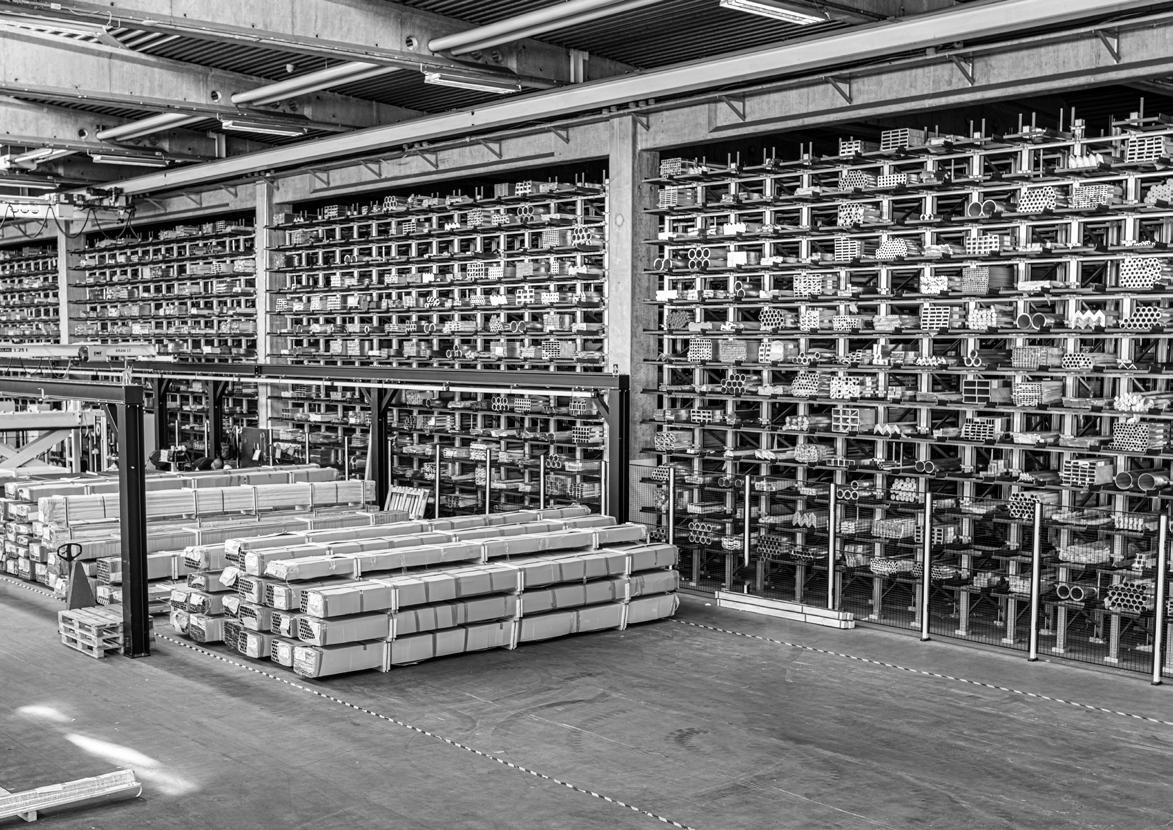
Alumeco ApS was established in Denmark as a wholesaler firm in 1983. Since then, Alumeco has evolved from a local Danish firm to a major international trading company that sells aluminium, copper, brass, bronze and stainless steel to the metal-consuming industry.
The headquarters of Alumeco ApS, located in Odense (Denmark), employs 250 persons and has about 45,000 m2 of office and warehouse buildings, where the latter are the central warehouse for most of the firm. Alumeco’s other large central warehouse is in Coswig (Germany) and is 17,000 m2 in size.
All in all, Alumeco employs 600 people in 12 countries. The companies in Sweden, Finland, Poland and Lithuania each have their own warehouse locations.
• Aluminium, copper, brass, bronze and stainless steel
• Wholesale business (standard products)
• Customer-specific solutions
• Construction
Aluwind ApS was founded as an independent order-producing firm in 2009 and has since established firms in China (2011), Poland (2016) and Turkey (2025)
With a total of 400 employees, Aluwind supplies components to the world’s leading wind turbine producers. Aluwind has its own production and warehousing locations.
• Components for offshore wind turbines
• Components for wind turbine foundations
• Assembly kits including third party components
Over 40 years, Alumeco Group has built up a strong, international firm based on highly capable employees and effective business operations.

Main Office
Manufacturing site
Sales office
Subsidiary
We are known for our extensive knowledge and competent advice regarding aluminium, copper, brass, bronze and stainless steel.
As a global supplier and collaborating partner, and by virtue of our many subsidiaries in Europe and China, we have developed a broad international network.
We have continually invested in the firm’s physical infrastructure, so that today we now have the largest aluminium inventory in Northern Europe, with our own coil center and three fully automatic high-rack storage systems.
Aluwind also has its own full-scale production facility.

Our ESG work seeks to create value for customers, suppliers, employees and the society in which we operate.
We endeavour to make it easier for our customers to choose the products and solutions that contribute to their ESG goals. Our approach reflects our core values, through more than 40 years:
ESG has been a foundational element in our business strategy since 2019, and we will be expanding our ESG work in the coming years. The high point of our ESG work are the UN’s 17 Sustainable Development Goals.
“We have committed ourselves to a greener future and to enhancing the social and environmental conditions on our planet”
At Alumeco Group, we have chosen to focus on four of the UN Sustainable Development Goals.
These four goals cover areas in which, due to our size, market position, and place in the supply chain, can make a difference based on our core business. This year, for the first time, we have extended our work with all four goals into our supply chain.
In the following pages, you will find more information on how we specifically engage with each goal. Common to all four goals is our focused pursuit of achieving sub-goals within each domain, with our efforts documented in part through our ISO certifications.
Initially, our internal efforts are centered around our central warehouses in Odense (Denmark) and Coswig (Germany), as well as Aluwind’s key locations in Wrocław (Poland) and Jiangmen (China). 48% of our total trade (measured in tons) passes through one of these four sites.
On the following pages, you can read about our efforts related to the four selected Sustainable Development Goals (SDGs). In some areas we have already reached the first milestones, while in others, we are in the process of initiating projects that will help us reach our goals. We will consistently provide updates on our progress towards the SDGs in the coming years.
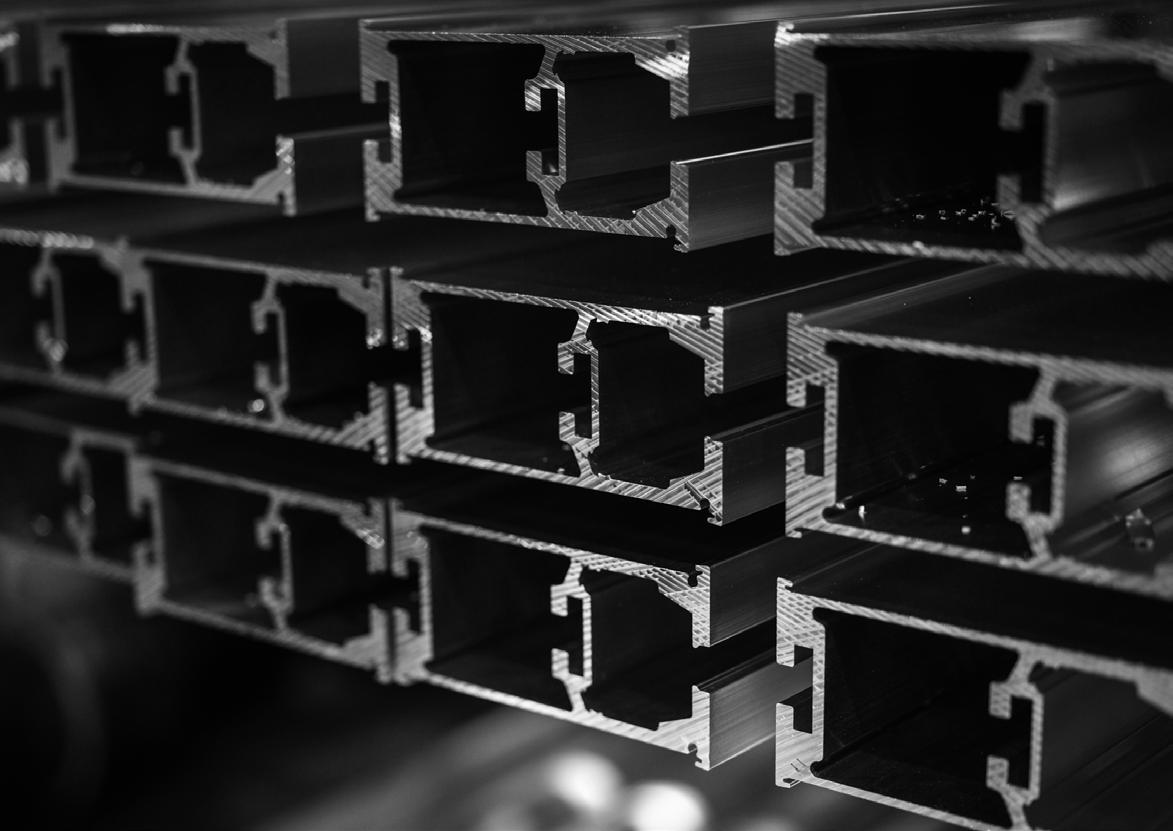
We work continually on reducing our energy consumption, and our goal is to obtain 100% of our energy from renewable sources by 2040.
We intend to achieve this goal by focusing on two areas:
• Reducing our overall energy need in the company.
• Investing in renewable alternatives to fossil fuels.
The specific strategy is dependent on general trends in the world and the aggregate expansion of infrastructure for renewable energy. We will therefore continually adjust our strategy.

Our two main locations in Denmark and Germany and Aluwind’s main locations in China and Poland are all ISO 45001-certified.
We are continually working to improve ourselves:
In 2023 and 2024, we have trained personnel from several of our locations and subsidiaries so that they can carry out internal audits. This has ensured that we can maintain the highest level of work environment standards and continually improve our processes.
As part of this work, we have continued to focus on safety initiatives, courses and procedures. This work includes training of staff, emergency and preparedness planning, risk analyses, management of accidents and near-accidents, and optimization of work procedures.

We recognize that primary production of metals requires massive inputs of coal and energy in terms of current global energy supply. Therefore, our goal is to reduce the amount of scrap in our main facilities by 20% and to increase the rate of utilization of the metals.
In 2022, we installed software on the panel saws used in the majority of Alumeco’s companies. The software helps to optimize our raw material consumption, and it is now fully implemented on the panel saws in both our central warehouses in Denmark and Germany. In Germany for the calendar year 2024, we have achieved a 7% reduction in the volume of scrap metal generated.
We are now in the process of testing the software on our profile saws, where we have had promising results up to now.
As a supplier, we also continually expand our range of products which are manufactured with consideration to climate and environment. This includes products manufactured using energy from renewable sources instead of coal and products with a high amount of scrap.

Our long-term goal is to reduce our total scope 1 and 2 CO2e emissions by 80% by the year 2040.
This year we have focused on preparing ourselves for the CSRD:
The Corporate Sustainability Reporting Directive (CSRD) will come to make major demands on our data and processes. Therefore, we have put much effort into preparing the reporting procedures and laying the groundwork for our future initiatives.
Until now, we have calculated our CO2e emissions with the help of the Greenhouse Gas Protocol and set up specific sub-targets as a part of the ISO 14001. This will not change. But our processes for measurement, KPIs, data and follow-up will become more streamlined under the CSRD framework.
This also means that we will obtain a better foundation for calculating and comparing our total CO2e emissions from year to year.
In 2024, two of our companies, Alumeco in Finland and our central warehouse in Coswig, Germany, moved to new locations with improved energy efficiency. As a result of the moving projects, Alumeco’s total CO2e emissions (scopes 1 and 2) will have a projected of 1.4%

The table below shows the trend in Alumeco’s CO2 emissions (Odense + Coswig) from the baseline year 2019 until today (measured in tonnes).
In 2023, we changed to more up to date data sources, which provides improved data quality; this partly explains the decline in emissions from 2022 to 2023.
The table below shows the trend in Aluwind’s CO2 emissions (Wrocław + Jiangmen) from the baseline year 2019 until today (measured in tonnes).
In 2023, we changed to more up to date data sources, which provides improved data quality.
We are part of an industry that has a significant impact on the climate. With current technologies and energy supplies, the production of metals is resource-intensive. Nevertheless, major technological advances are now being made. We have committed ourselves to reducing our own climate footprint and impacting the value chain preceding and following us.
Only by taking collective responsibility can we create a more sustainable future. Hence, we collaborate actively with our value chain – suppliers, distributors and customers – in order to promote more sustainable practices.
By seeking out innovation partnerships, development projects, and knowledge sharing, we hope to support a more sustainable development throughout the entire value chain.
We work with our suppliers in order to calculate and collect accurate data at both product and company levels, including Environmental Product Declarations (EPDs) and scope 3 emissions.
We encourage our distributors to introduce more sustainable business practices, reduce their climate impact and follow responsible purchasing practices.
As a supplier, we make it easier for our customers to make less climate-damaging choices. Therefore, we advise and inform our customers about the climate impact of various materials, designs, usage and disposal methods.
As a wholesaler, we depend on being able to influence our supply chain.
Scope 3 emissions account for more than 99% of our CO2e emissions, and it is therefore essential that we can leverage our market position to influence the links that precede and follow us.
By sharing knowledge and data across the value chain, we can collectively intervene in those areas where we can make the greatest impact.
Extraction and production of metals can already be made less environmentally burdensome by using renewable energy, but there remains considerable potential for innovation and development.
It is important that we invest in making this kind of development competitive if we are to avoid carbon leakage to other parts of the world and other unintended side effects.
A special challenge is that of ensuring that documentation and transparency are uniform throughout the world, so that all links in the chain can make informed choices on the basis of comparable data.

We are aware that our customers are making increased demands for data. Therefore, we are now collecting Environmental Product Declarations (EPDs) from all of our suppliers.
An EPD is comprehensive, standardised and thirdparty verified documentation of a product’s environmental impact. The EPDs allow us to gain a comprehensive overview of the climate and environmental impact of our products. This helps us in our sustainability efforts and makes it easier for our customers to document their footprint.
Data alone is not enough, however. We also want to become a platform for trading greener aluminium, so that it becomes easier for our customers to purchase in a way that supports their sustainability strategies.
Therefore, since 2021, we have been marketing two product ranges with a guaranteed lower CO2e footprint than conventional aluminium. The two product groups consist of aluminium with high scrap content and aluminium produced using renewable energy.
In the past year, we have made significant progress in our work of understanding our own climate and environmental impact.
By means of a thorough materiality analysis, we have mapped out our environmental impact and our possibilities and risks across the entire value chain. This analytical work has given us a more refined understanding of precisely where our efforts can make the greatest difference.
At the same time, we have continued working to improve our database for scope 1, 2 and 3, which gives us a more precise picture of our emissions and development over time. The improved data collection and the thorough analytical work has given us a robust foundation for prioritizing and initiating targeted initiatives that can reduce our overall climate and environmental impact.
With this combination of new knowledge and improved data quality, we are now better equipped to work strategically and effectively to reduce our footprint.
This work is crucial to our long-term goal and our ambition of creating greater transparency and accountability in our environment work.

Our employees are a crucial resource and fundamental to our market position. Therefore, it is essential that that we integrate new employees sufficiently in order to continue to attract, retain and develop competent employees.
As part of our Corporate HR Policy, all white collar emplyees must read and accept our Employee Code of Conduct. In 2024, 92% had read and accepted the guidelines. The response rate is affected by persons who have been absent during the period due to long-term illness or parental leave and who therefore could not respond to the survey.
Our Employee Code of Conduct ensures that no employees experience or contribute to violations of human rights, harassment, discrimination, or bias based on gender, race, skin color, religion, political or sexual orientation, social or ethnic background, age or disability.
The distribution by age and seniority is calculated by dividing the average number of permanent employees in the Group, including both blue and white collar employees, into the chosen age and seniority groups. Data is retrieved from our HR system, where all employees are registered. Temporary workers from temp agencies are not included.
We operate in an industry where there has traditionally been a higher representation of males. Across the Group and among blue and white collar employees, the gender distribution is approximately 27% women, 72% men and 1% undisclosed. It is not mandatory to disclose one’s gender to be employed within the Group.
The Group has an approved policy concerning the composition of the management level. The policy is reviewed and updated annually.
The progression of tenure demonstrates a high degree of retention of skills and experience.
The age distribution within the Alumeco Group indicates that our initiatives concerning occupational health and personal development cater to employees of all ages.
In order to ensure a smooth integration into Alumeco Group, all newly hired employees participate in a comprehensive onboarding program. The program is regularly updated so as to ensure a relevant and thorough introduction to Alumeco Group and the employee’s job function.
In some cases, new employees are assigned a ‘buddy’, typically a senior colleague, in order to ensure effective integration, both professionally and socially.
The onboarding program is continually evaluated by the new employees. Over the past 18 months, the evaluations indicate that 84% of the newly recruited employees feel comfortable in their departments at the conclusion of the onboarding program.
On 1 July 2024 we implemented a new policy for worktime registration in our Danish companies in order to fulfil the new EU directive on registration of working hours, and in order to ensure that our employees respected the work time rules according to the work directive.
After the implementation of the working hours registration system, it has become easier to assess whether our employees have a healthy working environment with respect to working hours.
Our German companies are also subject to the new regulations, and they already had procedures for registration of working hours.
We have continued to focus on employees with high levels of illness-related absenteeism in order to clarify whether there are conditions at the workplace that may have contributed to their absence.
We are especially focussed on what we as an employer can do to bring the employee back to their workplace in the best possible way, including reduced working hours and adjustment of work tasks.
During 2023 and 2024, several employees, primarily men, have taken parental leave in accordance with the new parental leave regulations. We are happy to be able to offer fathers and co-parents better conditions for taking parental leave, thereby ensuring a higher degree of equality among our employees.

The onboarding program is continually developed and customised based on participants’ evaluations and our needs, and we intend to expand the use of the ‘buddy’ mentoring scheme.
A new focus has been to conduct an onboarding program in Odense for all new employees in our foreign subsidiaries. This initiative has already begun and takes place over a two-day period about twice a year, thus bringing together all the new employees from the subsidiary units.
The Alumeco Group is making efforts to oppose discrimination of specific employee groups and to promote a diverse labour market.
We intend to minimize bias in recruitment processes by using inclusive language and pursuing gender and age neutrality in job postings.
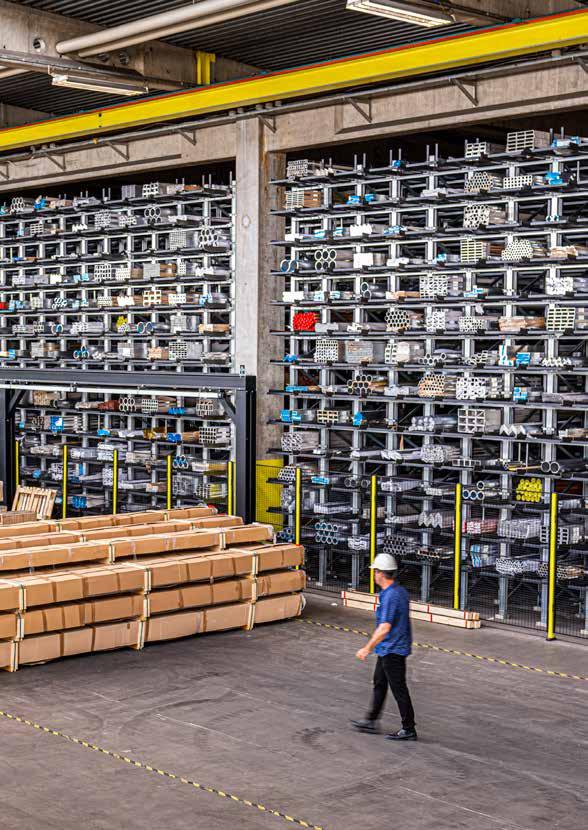
It is a risk to society as a whole, and consequently to our company, when individuals face challenges entering or reentering the job market for various reasons. This could be due to reduced work capacity, unemployment or lack of professional experience.
Without sufficient efforts to reintegrate people into the workforce, we risk losing or wasting valuable know-how and loyal employees.
When an employee’s work capacity is limited due to illness, injuries or age, we offer temporary or permanent adjustments to the extent possible in order to retain the employee.
For individuals who have been out of the job market for a period, we offer internship programs. We also collaborate with educational institutions and provide apprenticeship programs for persons undergoing education.
We have ongoing collaboration with local job centers and educational institutions, and we participate in education fairs several times a year. We endeavour to help students who are writing their graduation thesis or other projects focusing on Alumeco. Last year, we cooperated with many students and groups from several educational institutions in many of our companies.
We also want to help students and recent graduates to enter the job market. Therefore, we offer student jobs, internship programs, apprenticeships and similar opportunities to the extent the respective organisation can accommodate them. This year we have increased our focus on hiring apprentices and interns.
Among other initiatives, we have again this year cooperated with LEAD THE TALENT in Odense. The program started with five recent graduates who have investigated opportunities and proposals for the use of Artificial Intelligence in the Alumeco Group. We then selected one of the candidates their work and help with the implementation of AI in Alumeco.
In Aluwind in China, we have also offered internship opportunities for university students in order to help them enter the job market.

Aluwind in Poland has participated annually in a charity run that supports the employees’ physical and mental well-being while also providing financial aid to children with serious illness.
In Germany, Alumeco Service has collected funds this year for several projects, among them the Muddy Angel Run, which is a charity race against breast cancer.
In addition, Alumeco Service arranged a volleyball tournament with the surrounding firms, in which income from food and drink sales was used to support the town’s primary school. This tournament will now take place every second year. Alumeco Service has also manufactured a trophy from our own aluminium, which is awarded to the winner of the tournament.
In addition, we also support the “Defeat Cancer“ campaign in Denmark and provide Christmas packages through local organisations in several countries.
In order to contribute to a healthy work-life balance and reduce the risk of stress, we offer flexible working hours and remote work days in certain parts of the Group.
In addition, we provide our employees with health-promoting initiatives such as influenza vaccinations, health checkups and a massage program.
In Denmark, we regularly participate in external sports and health events each year, including initiatives such as the ‘Bike to Work’ campaign, and the Odense ‘Adventure Race’.
In China, Aluwind has offered all their employees regular check-ups and assistance in managing health problems.
In Germany, Alumeco Service has also focused on health, and hosts yoga sessions with exercise breaks during working hours and health days in cooperation with the health insurance companies.
Since 2022, we have had a focus on the physical well-being among our employees in Denmark. One of our goals here has been to reduce physical inactivity during the working day.
We have therefore established an employee-run group that offers activities both during and after working hours, where all employees can participate, regardless of their physical condition.
The activities can be one-off events, such as padel tennis, badminton tournaments and spinning events, or they can be of a more ongoing character, such as a bicycle team.
During working hours, the group focuses on promoting exercise breaks, e.g. with instruction in flexibility training.
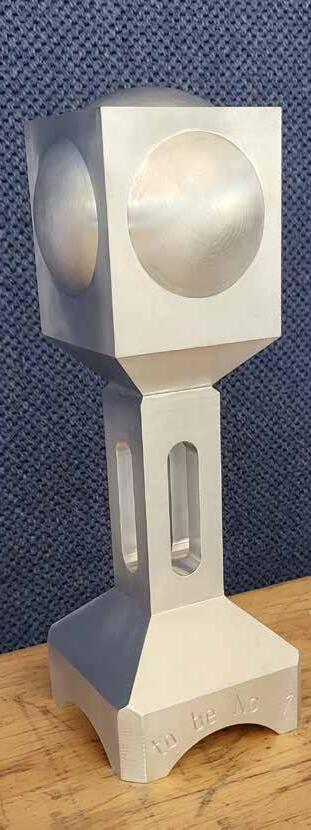
We will continue to develop our collaboration with job centers and educational institutions so that we can give more individuals a strong connection to the labour market.
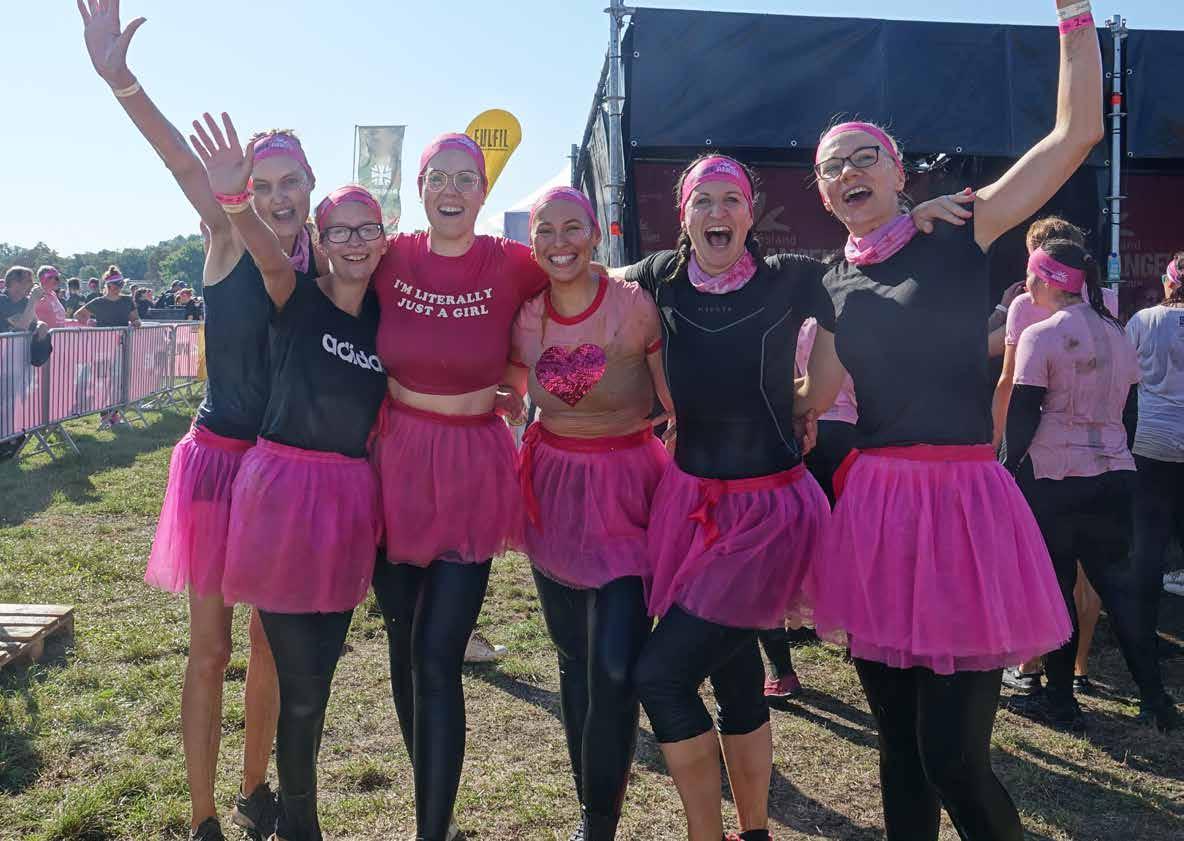
To decrease absenteeism and strengthen the culture in all companies, we want to encourage more social activities in all companies.
We work continually to improve our working environment and create a safe and healthy workplace for our employees. In the past year we have implemented several initiatives for strengthening safety, ergonomics and well-being.
As a foundation for our work with working environment, we are now ISO 45001-certified at all our main locations in Alumeco and Aluwind.
Particularly in the context of warehouse and production activities, there is a risk of physical work-related injuries and accidents, which may potentially lead to absenteeism, liability for compensation and negative impacts on the working environment. We therefore have a continuous focus on ensuring a healthy working environment (both physical and psychological) and minimising work-related injuries and accidents.
In addition to adhering to applicable laws and guidelines, we focus on a range of key areas to support a sound and secure work environment while minimising work-related injuries and accidents:
• Operating in accordance with ISO 45001 guidelines.
• Ensuring all employees undergo fundamental safety training.
• Establishing an effective working environment organisation, including appointing HSE (Health, Safety, and Environment) personnel in all relevant subsidiaries.
• Minimising workplace accidents through analysis of the cause and implementation of relevant preventive measures to prevent similar accidents.
• Complying with internal guidelines, including maintaining readily available instructions for the use of personal protective equipment.
• Formulating a safety policy for external visitors.
• Providing health examinations as well as relevant safety courses, incl. first aid courses.
• Conducting regular workplace assessments.
• Documenting all internal safety training.
• Conducting and recording annual safety refresher training sessions.
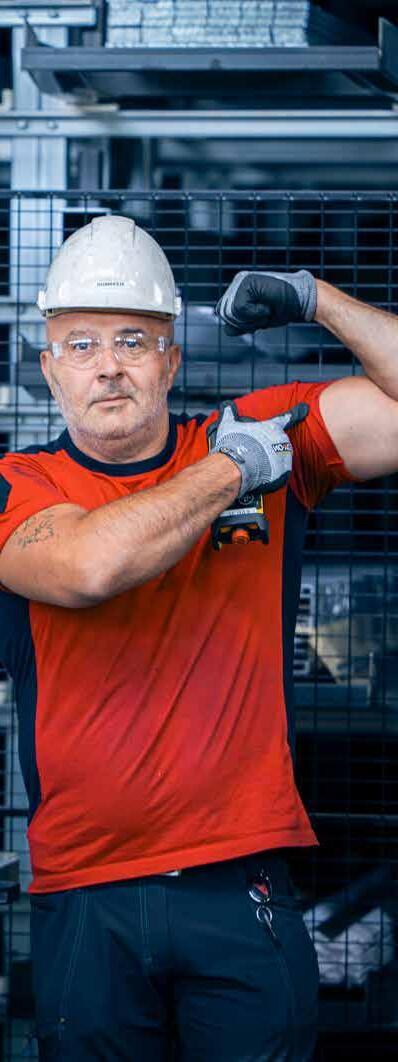
Alumeco’s production in Coswig (Germany) has moved to a new location enabling warehouse and production employees to work in close proximity to each other. This also benefits the administrative staff, as all the office workers are now assembled in a single location.
In China, Aluwind has had a major focus on working environment in the past year. We have now introduced a ’30 seconds of safety’ program and held a focus week on safety.
In addition, we have purchased welding rotators for use in production and height-adjustable desks for the office workers in order to ensure healthy ergonomic conditions.
In order to ensure a secure working environment at the central warehouse in Odense, we have invested in ‘alone alarms’ which increase safety for employees working alone.
In addition, we have implemented new, more ergonomic belt lashing straps which reduce the load on everyday work tasks.
On our plate saws, we have improved safety conditions around suction pads to minimise the risk of accidents. To reduce the risk of back problems for warehouse staff, we have transitioned to more comfortable tractors with better shock absorption.
We have also created a new driving path for trucks and carts in the warehouse, which contributes to both safety and efficiency in production.
The work environment organization has organized its work with work-related accidents by selecting specific focus areas which are reviewed in a cooperative arrangement between management and employees.
In order to reduce the risk of work-related injuries when operating overhead cranes and column jib cranes, we carry out internal safety training for all relevant employees and temporary staff at least once a year.
The diagram below shows the number of work-related accidents reported to the working environment committees in the individual companies in relation to the average number of employees during that period. The overview applies only to our four primary production facilities.
The diagram shows that the number of work-related accidents has declined, which indicates that our efforts have had a positive impact. As the period 2023/2024 extends over 18 months instead of 12 months due to changes in the fiscal year, the number of workrelated accidents has fallen further compared to previous years.
The 2023 workplace assessment (APV) in Odense showed an unacceptably high level of stress and workload pressure. Therefore, a working group has been established containing both employees and managers with a specific focus on psychological well-being.
In addition, the entire organization is periodically invited to inspiration lectures which can strengthen the employee’s well-being. In previous years, these lectures have concerned the ability to move forward even when one has experienced adversity or disappointment.
In Q1 2025, the workplace assessment (APV) was carried out again, and we hope to see results of the new initiatives compared to the 2023 APV.
Increased focus on encouraging employees to report safety issues in order to prevent potential accidents.
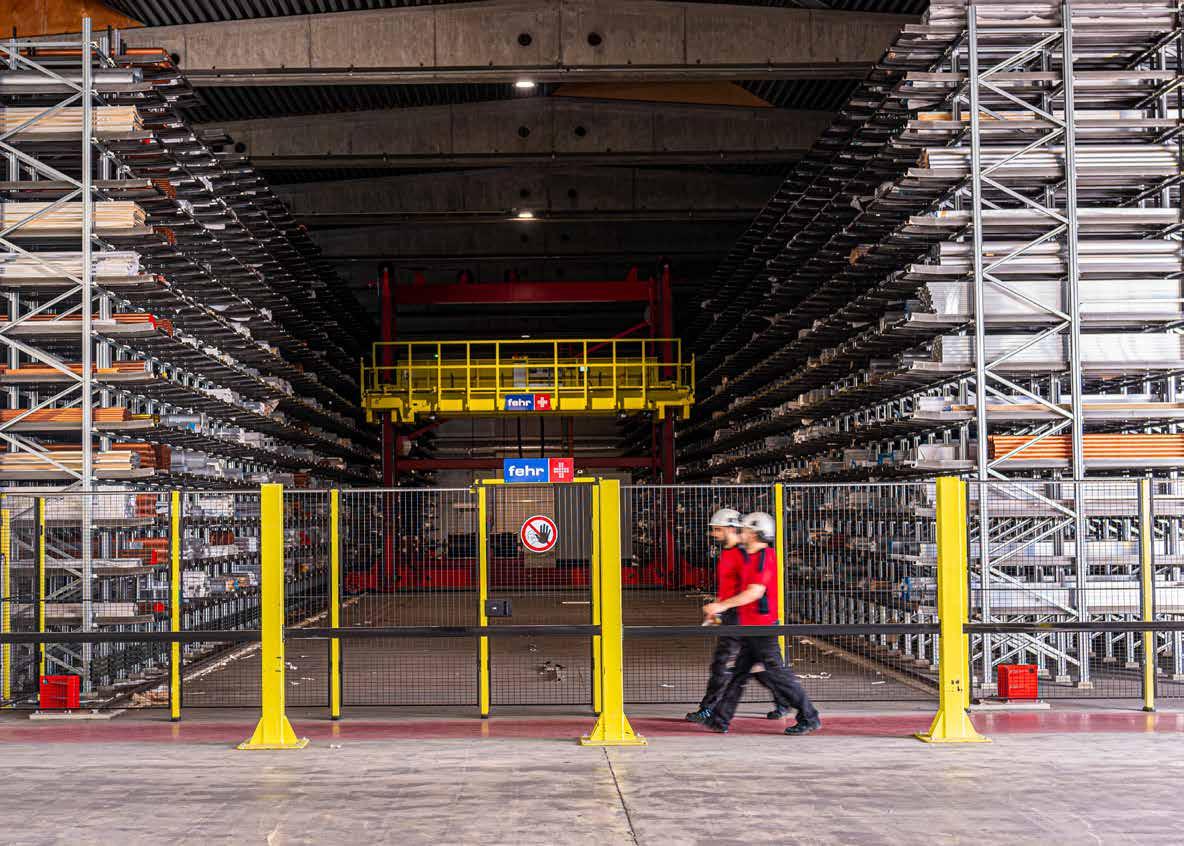
In connection with the new location in Coswig, all work stations will be adapted and improved, and an outdated diesel forklift truck is being replaced with an electric truck.
Aluwind in China is working on more automation solutions for office employees and on cleaning up the river that flows into the Xizang River
Alumeco Group complies with applicable legislation and refrains from any form of corruption, bribery and misuse of power.
It is crucial for us to be a reliable company with high integrity and to meet the expectations of our stakeholders, society and our business partners.
As an international group, our interactions with business associates pose a risk of corrupt practices and bribery, just as violation of human rights is a risk. In Alumeco Group, we have worked to identify risks associated with new suppliers and to identify and map situations that could potentially lead to challenges.
To prevent any form of corruption and bribery, all employees who interact with our business associates are obligated to follow our anti-corruption policy. All suppliers must sign a Code of Conduct with obligation to comply with the same rules as Alumeco Group.
The policy sets clear guidelines for acceptable and unacceptable behavior.
The anti-corruption policy is updated regularly based on the current risk landscape, just as we have ongoing contact with our suppliers and relevant employees.
Once a year, employees whose roles involve interactions with business associates confirm that they have read and accepted the anti-corruption policy. As part of their onboarding, all new employees are introduced to the policy and encouraged to ask questions and reach out to their immediate supervisor if they encounter situations that raise doubts.
In 2023/2024, repeating a tendency from previous years, there have been no reported cases of corruption in the Alumeco Group.
We screen selected customers and suppliers to ensure that there are no sanctioned individuals within their ownership structure. We also screen for non-compliance with legislation and guidelines. In the past year, we have intensified and expanded our procedures for this purpose.
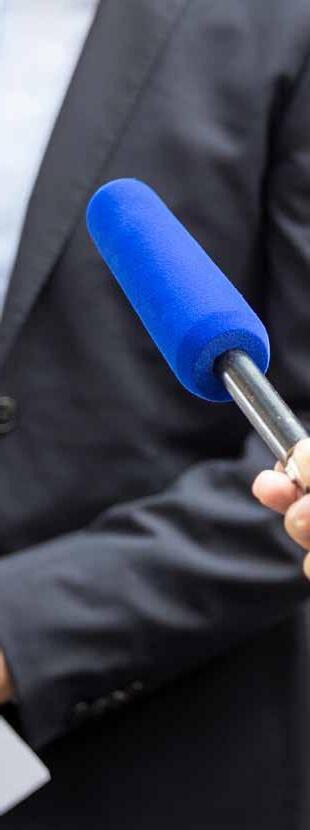
In 2022, Alumeco Group introduced a whistleblower scheme.
Through the whistleblower scheme, you can freely report concerns and reasoned suspected irregularities or violations of rules, laws, procedures or Code of Conduct.
The reporting can pertain to Alumeco’s employees, management, board, suppliers, and similar entities. Anyone, both internally and externally, can report a suspicion or concern through the scheme.
The whistleblower scheme is freely accessible on the website alumeco.integrityline.com.
The scheme is managed by an external party, which forwards relevant reports to a group within Alumeco comprising the Group CEO, Head of Legal, and HR Manager.

During the fiscal year 2023/2024, we received one submission to our whistleblower program. The suspicion could not be confirmed
With the increased use of digital media both in personal and business contexts, digital crime is on the rise in forms such as phishing attacks and various types of social engineering. Additionally, there has been a rise in attempts at invoice fraud, where changes are made to account details on invoices, leading to payments being made to perpetrators’ accounts.
We see that security breaches in companies are typically caused by the negligence of one or more users.
All companies in the Alumeco Group rely on well-functioning IT systems and infrastructure where data availability, integrity, and confidentiality are essential to serving our customers. We continuously work on developing and updating policies that ensure all employees are equipped to address emerging challenges. Additionally, we create policies and guidelines with tools that help employees identify irregularities and attempts at criminal activities.
To prevent security breaches, we collaborate with external IT security experts to continually map the current threat landscape and define prioritised actions to mitigate risks.
These measures focus on safeguarding IT systems against cyber attacks and increasing user awareness about cyber and information security.
During the past year, we have invested in new training tools in order to give employees a better understanding of data security and cyber security.
To ensure business continuity, we work with business continuity plans (BCP) and train relevant employees and systems to sustain operations in the event of irregularities and incidents.
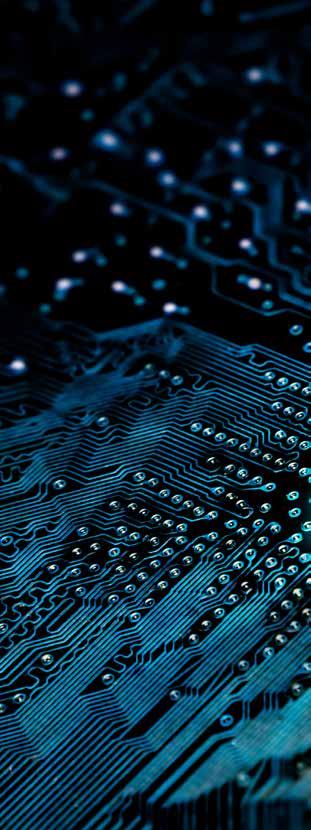
We anticipate that the risk of cyber attacks will increase in the future. Therefore, we are continuing and enhancing our ongoing efforts in terms of security concerning our systems and our employees.
This applies especially to new employees but also to maintaining security awareness among existing employees. We will conduct relevant awareness training throughout the Group annually and more frequently as needed. Additionally, selected employees will receive increased instruction, training, and certifications within the field to ensure sufficient specialised knowledge and attention to the subject.

mail@alumeco.dk www.alumeco.com
info@aluwind.com www.aluwind.com
